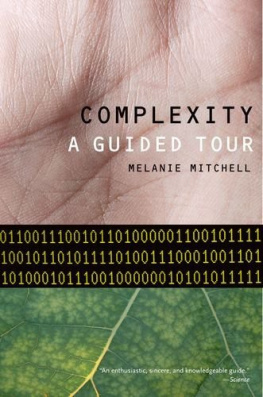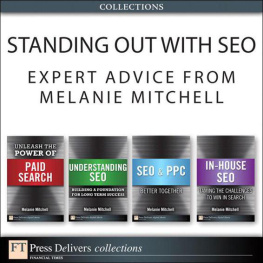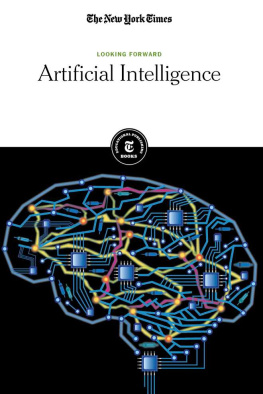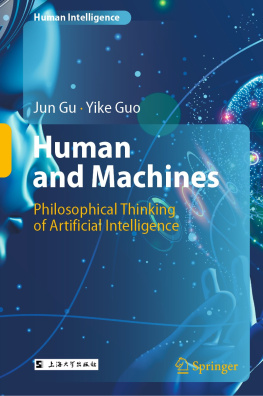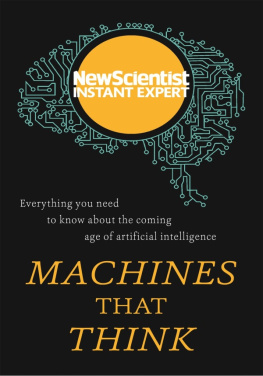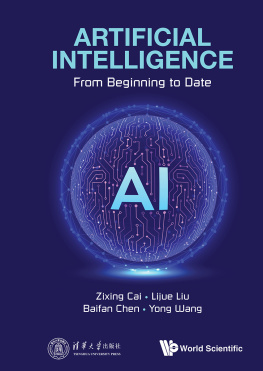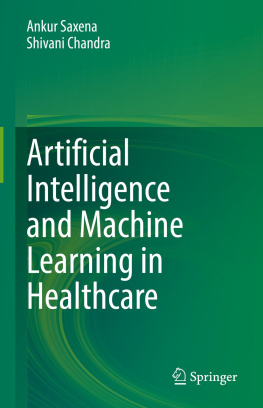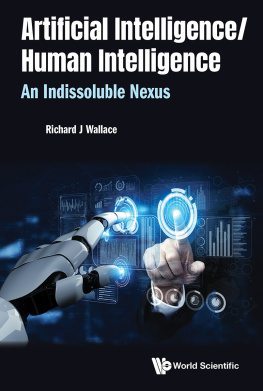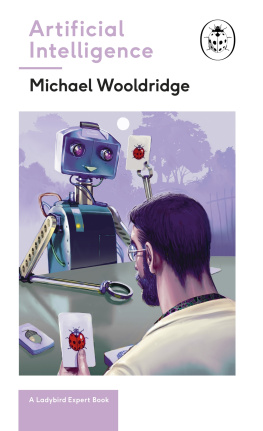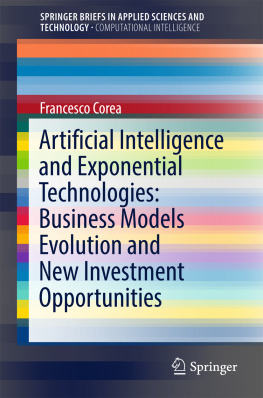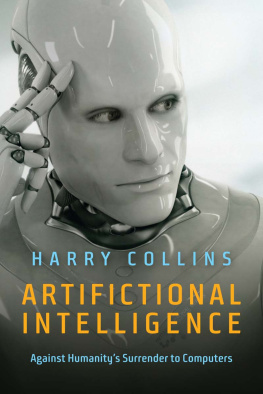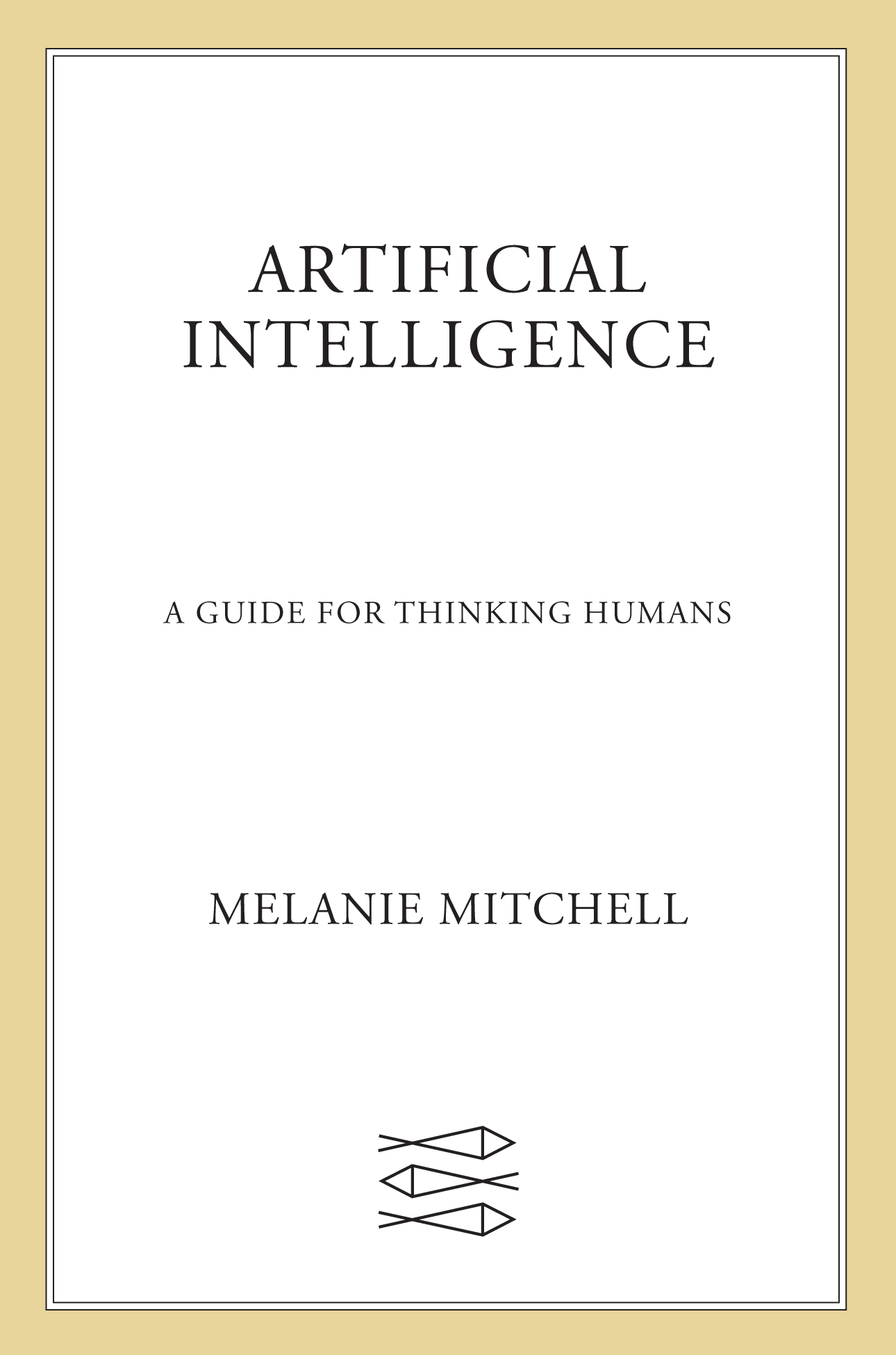The author and publisher have provided this e-book to you for your personal use only. You may not make this e-book publicly available in any way. Copyright infringement is against the law. If you believe the copy of this e-book you are reading infringes on the authors copyright, please notify the publisher at: us.macmillanusa.com/piracy.
Computers seem to be getting smarter at an alarming rate, but one thing they still cant do is appreciate irony. Thats what was on my mind a few years ago, when, on my way to a discussion about artificial intelligence (AI), I got lost in the capital of searching and findingthe Googleplex, Googles world headquarters in Mountain View, California. Whats more, I was lost inside the Google Maps building. Irony squared.
The Maps building itself had been easy to find. A Google Street View car was parked by the front door, a hulking appendage crowned by a red-and-black soccer ball of a camera sticking up from its roof. However, once inside, with my prominent Visitor badge assigned by security, I wandered, embarrassed, among warrens of cubicles occupied by packs of Google workers, headphones over ears, intently typing on Apple desktops. After some (map-less) random search, I finally found the conference room assigned for the daylong meeting and joined the group gathered there.
The meeting, in May 2014, had been organized by Blaise Agera y Arcas, a young computer scientist who had recently left a top position at Microsoft to help lead Googles machine intelligence effort. Google started out in 1998 with one product: a website that used a novel, extraordinarily successful method for searching the web. Over the years, Google has evolved into the worlds most important tech company and now offers a vast array of products and services, including Gmail, Google Docs, Google Translate, YouTube, Android, many more that you might use every day, and some that youve likely never heard of.
Googles founders, Larry Page and Sergey Brin, have long been motivated by the idea of creating artificial intelligence in computers, and this quest has become a major focus at Google. In the last decade, the company has hired a profusion of AI experts, most notably Ray Kurzweil, a well-known inventor and a controversial futurist who promotes the idea of an AI Singularity, a time in the near future when computers will become smarter than humans. Google hired Kurzweil to help realize this vision. In 2011, Google created an internal AI research group called Google Brain; since then, the company has also acquired an impressive array of AI start-up companies with equally optimistic names: Applied Semantics, DeepMind, and Vision Factory, among others.
In short, Google is no longer merely a web-search portalnot by a long shot. It is rapidly becoming an applied AI company. AI is the glue that unifies the diverse products, services, and blue-sky research efforts offered by Google and its parent company, Alphabet. The companys ultimate aspiration is reflected in the original mission statement of its DeepMind group: Solve intelligence and use it to solve everything else.
AI and GEB
I was pretty excited to attend an AI meeting at Google. I had been working on various aspects of AI since graduate school in the 1980s and had been tremendously impressed by what Google had accomplished. I also thought I had some good ideas to contribute. But I have to admit that I was there only as a tagalong. The meeting was happening so that a group of select Google AI researchers could hear from and converse with Douglas Hofstadter, a legend in AI and the author of a famous book cryptically titled Gdel, Escher, Bach: an Eternal Golden Braid, or more succinctly, GEB (pronounced gee-ee-bee). If youre a computer scientist, or a computer enthusiast, its likely youve heard of it, or read it, or tried to read it.
Written in the 1970s, GEB was an outpouring of Hofstadters many intellectual passionsmathematics, art, music, language, humor, and wordplay, all brought together to address the deep questions of how intelligence, consciousness, and the sense of self-awareness that each human experiences so fundamentally can emerge from the non-intelligent, nonconscious substrate of biological cells. Its also about how intelligence and self-awareness might eventually be attained by computers. Its a unique book; I dont know of any other book remotely like it. Its not an easy read, and yet it became a bestseller and won both the Pulitzer Prize and the National Book Award. Without a doubt, GEB inspired more young people to pursue AI than any other book. I was one of those young people.
In the early 1980s, after graduating from college with a math degree, I was living in New York City, teaching math in a prep school, unhappy, and casting about for what I really wanted to do in life. I discovered GEB after reading a rave review in Scientific American. I went out and bought the book immediately. Over the next several weeks, I devoured it, becoming increasingly convinced that not only did I want to become an AI researcher but I specifically wanted to work with Douglas Hofstadter. I had never before felt so strongly about a book, or a career choice.
At the time, Hofstadter was a professor in computer science at Indiana University, and my quixotic plan was to apply to the computer science PhD program there, arrive, and then persuade Hofstadter to accept me as a student. One minor problem was that I had never taken even one computer science course. I had grown up with computers; my father was a hardware engineer at a 1960s tech start-up company, and as a hobby he built a mainframe computer in our familys den. The refrigerator-sized Sigma 2 machine wore a magnetic button proclaiming I pray in FORTRAN, and as a child I was half-convinced it did, quietly at night, while the rest of the family was asleep. Growing up in the 1960s and 70s, I learned a bit of each of the popular languages of the day: FORTRAN, then BASIC, then Pascal, but I knew next to nothing about proper programming techniques, not to mention anything else an incoming computer science graduate student needs to know.
To speed along my plan, I quit my teaching job at the end of the school year, moved to Boston, and started taking introductory computer science courses to prepare for my new career. A few months into my new life, I was on the campus of the Massachusetts Institute of Technology, waiting for a class to begin, and I caught sight of a poster advertising a lecture by Douglas Hofstadter, to take place in two days on that very campus. I did a double take; I couldnt believe my good fortune. I went to the lecture, and after a long wait for my turn in a crowd of admirers I managed to speak to Hofstadter. It turned out he was in the middle of a yearlong sabbatical at MIT, after which he was moving from Indiana to the University of Michigan in Ann Arbor.
To make a long story short, after some persistent pursuit on my part, I persuaded Hofstadter to take me on as a research assistant, first for a summer, and then for the next six years as a graduate student, after which I graduated with a doctorate in computer science from Michigan. Hofstadter and I have kept in close touch over the years and have had many discussions about AI. He knew of my interest in Googles AI research and was nice enough to invite me to accompany him to the Google meeting.


